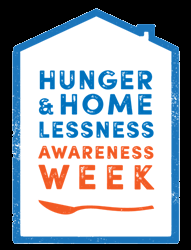Food Insecurity and Homelessness
Facing food insecurity impacts our mental and physical health. One study shows that mothers of school-aged children facing hunger are 56% more likely to face PTSD and 53% more likely to face severe depression. There is a strong relationship between hunger and chronic diseases. Food insecurity also changes the way we think and plan. It diminishes our cognitive ability, and food insecurity in youth might even have negative long-term cognitive effects into adulthood.
The mental and physical health struggles faced by many homeless are even more insidious and the results even more dramatic. Becoming homeless can lead to a serious loss of self-esteem, fear of or actually becoming institutionalized, increase in substance misuse, loss of ability and will to care for oneself, increased danger of abuse and violence, increased chance of entering the criminal justice system, and development of behavioral problems. Homelessness can also lead to cold injury or heat stroke, cardio-respiratory diseases, tuberculosis, skin diseases, nutritional deficiencies, sleep deprivation, new or exacerbated mental Illness, risk for physical and sexual assault, drug dependency and related illnesses, and death.
The causes of food insecurity and homelessness are complex. Without addressing the emergency need for food, shelter, and care coordination, the problems only spiral and become worse.
More Reading: Hunger and Homelessness Week
#atheistshelping




